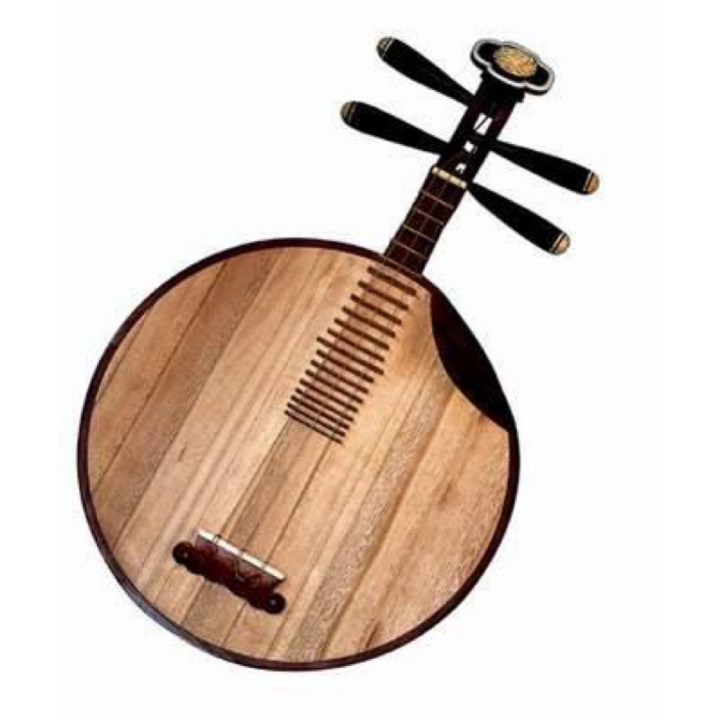Yueqin overview
 Yueqin (Pinyin: yuè qín), a plucked musical instrument of the Han nationality, originated in the Han Dynasty. It has been spread in China, Japan, the Korean Peninsula, and Vietnam. It is also spread in China and Vietnam. The early Yueqin had a long neck and generally had about twelve frets. In the Qing Dynasty, the short-necked Yueqin with the eighth rank or so appeared, which is easy to play in the high-pitched area, and is often used for the accompaniment of opera. After the development and improvement of Ruan in the 1950s, Yueqin usually refers to the short-necked Yueqin in mainland China.
Yueqin (Pinyin: yuè qín), a plucked musical instrument of the Han nationality, originated in the Han Dynasty. It has been spread in China, Japan, the Korean Peninsula, and Vietnam. It is also spread in China and Vietnam. The early Yueqin had a long neck and generally had about twelve frets. In the Qing Dynasty, the short-necked Yueqin with the eighth rank or so appeared, which is easy to play in the high-pitched area, and is often used for the accompaniment of opera. After the development and improvement of Ruan in the 1950s, Yueqin usually refers to the short-necked Yueqin in mainland China.Yueqin plays an important role in the musical life of the Yi, Hani, Miao and other ethnic minorities, and is often used in the social and romantic life of young men and women. In the traditional festivals of various ethnic groups and the festive "song dance" and "slope jumping" activities, it is an indispensable musical instrument for conveying feelings. One or more of the violin players dance while playing, and then the crowd dances in a circle.
The music of the Yueqin is rich and colorful, and it is different from each ethnic group and each region. The more famous traditional solo pieces of the Yi people are: "The Wind Blows the Ground", "Wild Horses Crossing the River", "A Pair of Geese", "Liu Beiqiang", "Ganluo Diao", "Shuxi Diao", "Leibo Diao" , "Weining Tune", "Dali Tune", "Turf Tune" and "Gamu Tune", etc. Hani Yueqin songs include "Crossing the Mountain" and so on.
- Chinese name:Yueqin
- traceable history:Emperor Wu of the Han Dynasty (140 BC - 87 BC)
- origin:Yueqin originated from Ruan
- main position:One of the three accompaniment instruments of the Peking Opera Band
- basic form:The speaker is full circle and the neck is short
overview of other similar instruments
- sanyanxiao overview
- Daguangxian overview
- Leiqin overview
- hahao overview
- yandundagu overview
- Han Xiaozheng overview
- Fang Xiang overview
- guanzi overview
- zhuqin (Dao Qin) overview
- zhuiqin overview
- bangzi overview
- three-stringed piano overview
- Gehu overview
- xiao overview
- xiaokonghou overview
- Konghou overview
- Sheng overview
- suona overview
- hulusi overview
- gushao overview
 渝公网安备 50010702504639号
渝公网安备 50010702504639号